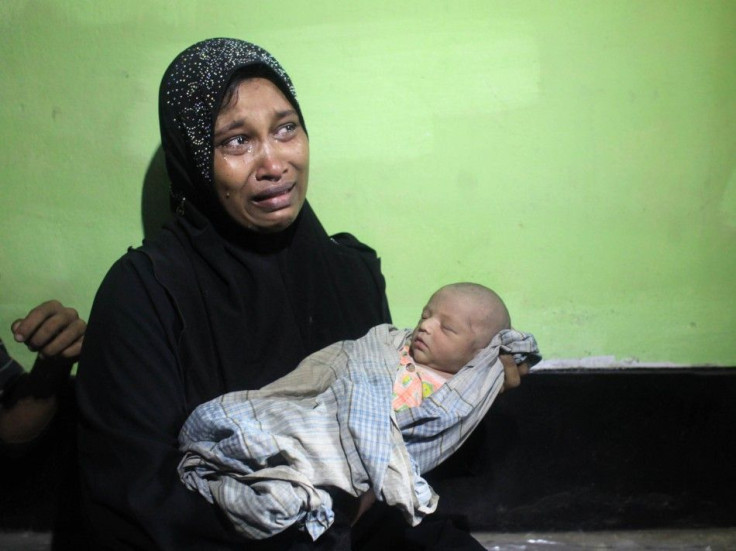90,000 Burmese Displaced By Violence As Bangladesh Seals Off Border

About 90,000 people have been displaced by the sectarian clashes in western Myanmar, estimates the United Nations.
Violence between the Rohingya Muslim minority and Buddhist majority over the past two weeks in the Rakhine province has also sparked at least 50 deaths and the burning down of hundreds of homes.
The United Nation's World Food Program said it has provided emergency food to more than 66,000 displaced people in Rakhine during the past week.
An unknown number of Rohingya seeking to escape to neighboring Bangladesh by sea and land have been forcibly turned back by Dhaka authorities. Bangladesh officials have now closed the border between the two countries.
Human rights activists as well as the U.N.’s refugee agency have condemned Bangladesh for its refusal to take in Rohingya fleeing violence in Myanmar.
“[We are] advocating with the Bangladeshi authorities to allow safe haven on its territory for those who need immediate safety and medical assistance,” the U.N. agency said in a statement.
“Previously people have been allowed in to Bangladesh for medical treatment. We hope that such good practices will be maintained.”
Human Rights Watch (HRW) has also implored Bangladesh to allow Rohingya refugees to enter their country.
Bangladesh is putting the lives of those fleeing violence -- including young children -- at risk by sending them back to Burma [Myanmar], said Bill Frelick, refugees director at HRW.
It is tragically ironic that Bangladesh has closed its border and is making forced returns on World Refugee Day. This is a reminder that the fundamental principles of refugee protection still need to be respected.
However, Bangladesh, an overcrowded and impoverished country which already houses at least 300,000 Rohinyga in camps, said it cannot accept any more refugees.
“Bangladesh never signed any kind of international act, convention or law for allowing and giving shelter to refugees,” said Bangladesh’s foreign minister, Dipu Moni last week. “That’s why we are not bound to provide shelter to the Rohingyas.”
Frelick of HRW countered: The Bangladesh government shouldn't be pushing boats back at all, but it's even more appalling that authorities are willing to send children back into territory where bloodshed continues. The government should provide those fleeing Burma (Myanmar) temporary refuge and open its doors to humanitarian aid from abroad.
Rohingya are a stateless community in Myanmar, with few, if any, rights. Myanmar authorities characterized them as “illegal immigrants” from Bangladesh and deny them basic rights.
On the other hand, Bangladesh does not want them either, despite their shared Muslim faith.
© Copyright IBTimes 2024. All rights reserved.











